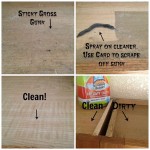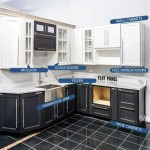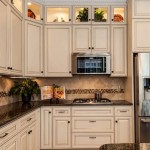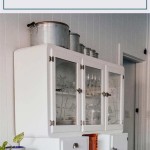The Essential Guide to Masterfully Spray Painting Kitchen Cabinets
Upgrading kitchen cabinets with a fresh coat of spray paint is a cost-effective and transformative project that can rejuvenate the heart of your home. However, achieving a flawless finish requires careful preparation and precise execution. This comprehensive guide will empower you with the essential aspects of spray painting kitchen cabinets, ensuring a professional-grade result.
1. Preparation: Laying the Foundation
Before you reach for the spray paint, meticulous preparation is crucial. Thoroughly clean the cabinet surfaces with a degreaser to remove any grease, grime, or contaminants. Next, sand the cabinets lightly to create a smooth base for the paint to adhere to. Wear a dust mask and safety glasses throughout the sanding process.
2. Priming: Establishing a Strong Bond
Primer is the unsung hero of spray painting. It acts as a bridge between the cabinet surface and the paint, ensuring a strong bond and preventing peeling. Apply a thin, even coat of primer and allow it to dry completely before moving on to the paint.
3. Choosing the Right Spray Paint: A Symphony of Sheen and Color
Select a high-quality spray paint specifically designed for cabinets. Opt for a sheen that complements the style of your kitchen. Satin or semi-gloss finishes offer a subtle sheen, while gloss finishes create a more polished look. Consider the color palette of your kitchen and choose a paint color that harmonizes with the existing décor.
4. Masking and Protecting: Shielding Vulnerable Areas
Before spraying, carefully mask off any areas you don't want painted, such as countertops, appliances, and hardware. Use painter's tape and plastic sheeting to create a barrier. Cover floors and walls with drop cloths to protect them from overspray.
5. Spray Painting Technique: A Dance of Precision
Shake the spray paint can thoroughly and hold it 8-10 inches away from the cabinet surface. Apply thin, even strokes, overlapping slightly with each pass. Maintain a steady distance and avoid overloading the surface with paint. Allow each coat to dry completely before applying the next.
6. Drying and Curing: A Matter of Patience
After applying the final coat, allow ample time for the paint to dry and cure. Resist the temptation to use the cabinets too soon. During the drying and curing process, the paint hardens and bonds firmly to the surface.
7. Finishing Touches: Restoring Functionality and Elegance
Once the paint has fully cured, remove the masking tape and plastic sheeting. Replace the hardware and any other components you removed before painting. Enjoy the transformed look of your kitchen cabinets and the satisfaction of a job well done.
Additional Tips for Success:
- Use a spray gun for a smoother, more even finish.
- Practice your spray painting technique on a scrap piece of wood or cardboard before tackling the actual cabinets.
- Ensure proper ventilation by opening windows or using a fan.
- Wear a respirator and gloves for protection when sanding and spraying.
- Allow sufficient drying time between coats to prevent smudging or peeling.
With proper preparation, attention to detail, and a touch of patience, you can transform your kitchen cabinets with a stunning spray paint finish. This comprehensive guide will empower you with the knowledge and confidence to tackle this project and achieve a professional-grade result that will enhance the beauty and functionality of your kitchen for years to come.

3 Ways To Spray Kitchen Cabinets In The Sprayworks

Want To Find Out How Spray Paint Kitchen Cabinets Like A Pro

How To Paint Kitchen Cabinets In 7 Simple Steps

Want To Find Out How Spray Paint Kitchen Cabinets Like A Pro

How To Spray Paint Cabinets Like The Pros Bright Green Door

How To Spray Paint Kitchen Units Pintyplus

How To Paint Cabinets With An Airless Sprayer

How To Paint Kitchen Cabinets With A Gun Painttech Training Academy

Can You Spray Paint Cabinets First Home Love Life

Spray Painting Kitchen Cabinets Pictures Ideas From
Related Posts








